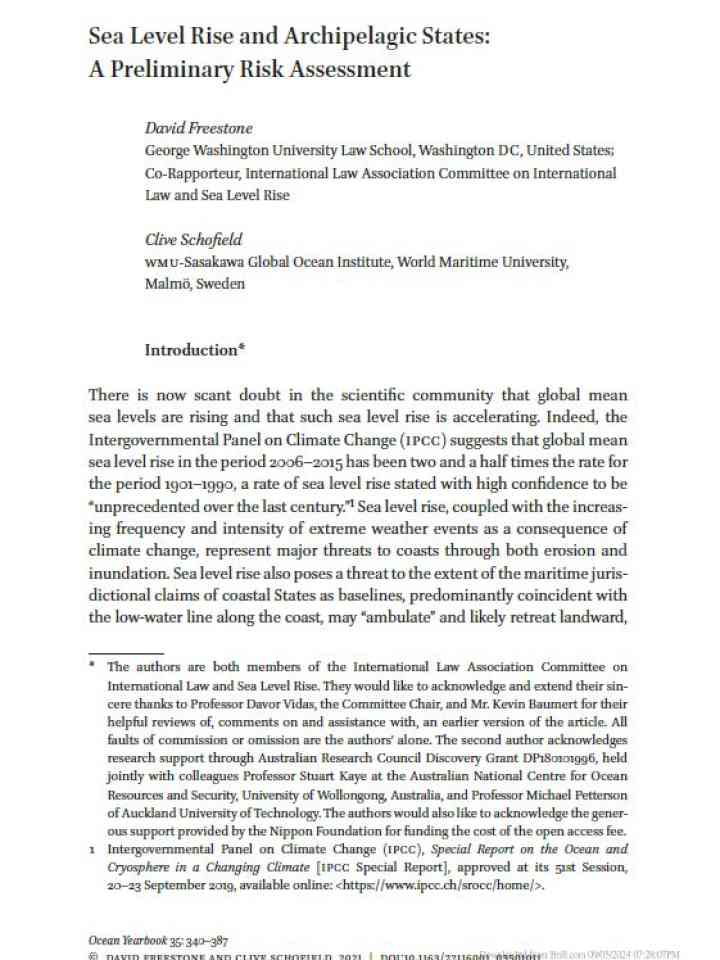Sea level rise and archipelagic states: A preliminary risk assessment
This current study seeks to examine at a preliminary level the potential impacts of sea level rise on the baseline systems of those 22 countries that currently claim archipelagic status and have established archipelagic baselines. In doing so it provides something of a case study of the resilience of the UNCLOS regime in relation to its ability, or otherwise, to withstand the impacts of climate change-induced sea level rise.
From this preliminary assessment of the impacts of sea level rise on archipelagic baselines it is possible to draft a few equally preliminary conclusions as to risks arising. In particular, it is possible to highlight some of the archipelagic baseline points most at risk. Clearly, low-tide elevation basepoints, which are permitted if they are “a distance not exceeding the breadth of the territorial sea from the nearest island,” are the most at risk from sea level rise. Low-tide elevations are, however, not widely used as basepoints in archipelagic baseline systems.
Explore further
